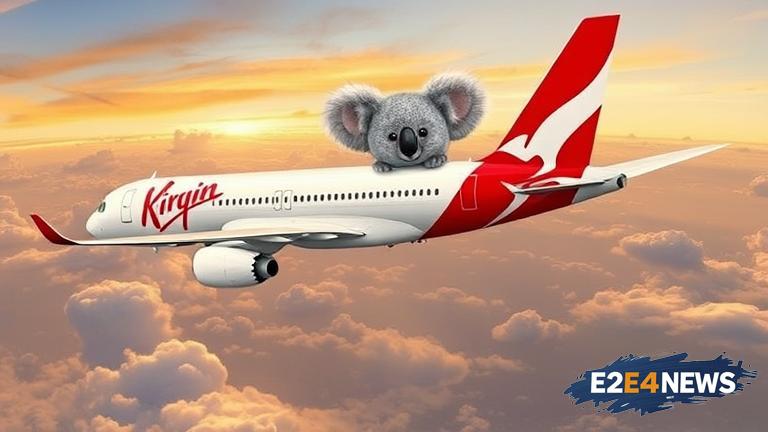The Australian aviation industry is on the cusp of a significant shift with the impending launch of Koala Airlines, a new player in the market. This development has sent ripples of concern among shareholders of established airlines, Virgin and Qantas, as they ponder the potential impact on their investments. Koala Airlines, with its promise of competitive pricing and enhanced customer experience, is poised to disrupt the status quo. The airline’s business model, which focuses on efficiency and cost-effectiveness, could potentially attract a sizable share of the market, currently dominated by Virgin and Qantas. However, it’s essential to note that the Australian market is not without its challenges, including high operational costs and stringent regulatory requirements. Despite these hurdles, Koala Airlines seems determined to make a mark, with plans to operate on key routes and offer a unique set of services. The entrance of Koala Airlines into the market is likely to lead to a price war, as Virgin and Qantas may be forced to revisit their pricing strategies to remain competitive. This could result in cheaper fares for consumers, which, in turn, could boost demand for air travel. On the other hand, the increased competition could also lead to reduced profit margins for the established airlines, potentially affecting their shareholders. The Australian government, keen to promote competition and consumer choice, has welcomed the entry of Koala Airlines. The regulator’s stance on the matter is clear: more competition is seen as beneficial for the industry and the consumer. As Koala Airlines prepares to take to the skies, Virgin and Qantas are gearing up to respond to the new challenge. Both airlines have a strong brand presence and a loyal customer base, which could help them weather the storm. Nevertheless, they will need to be proactive in their approach, potentially investing in new technologies and services to stay ahead of the curve. The battle for market share is set to intensify, with Koala Airlines pushing the boundaries of innovation and customer satisfaction. In response, Virgin and Qantas may need to reassess their strategies, focusing on areas such as loyalty programs, in-flight entertainment, and personalized services. The entry of Koala Airlines also raises questions about the potential for partnerships and collaborations in the industry. Could we see the new airline forming alliances with other players, or will it opt to go it alone? The answers to these questions will become clearer as the market continues to evolve. For now, one thing is certain: the Australian aviation industry is in for a significant shake-up, and the consequences of Koala Airlines’ entry will be felt across the board. As the situation unfolds, shareholders of Virgin and Qantas will be watching with bated breath, hoping that their investments will remain resilient in the face of increased competition. The future of air travel in Australia is looking increasingly complex, with multiple players vying for dominance. Ultimately, the consumer is likely to be the beneficiary of this competition, with cheaper fares, improved services, and a greater range of choices on offer. However, for the airlines themselves, the road ahead will be fraught with challenges, as they navigate the complexities of a rapidly changing market. The entrance of Koala Airlines serves as a reminder that the aviation industry is constantly evolving, and that adaptability and innovation are key to success. As the market continues to shift, one thing is clear: the Australian aviation industry will never be the same again. With the launch of Koala Airlines, a new era of competition and innovation has begun, and the consequences will be felt for years to come.





